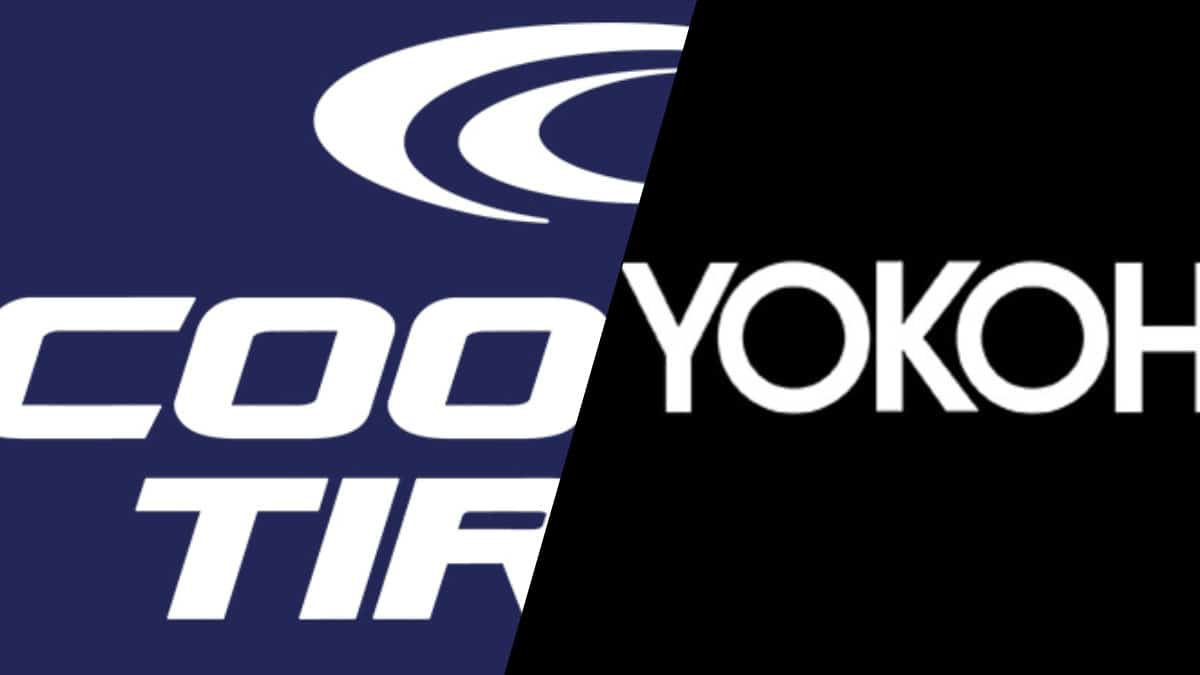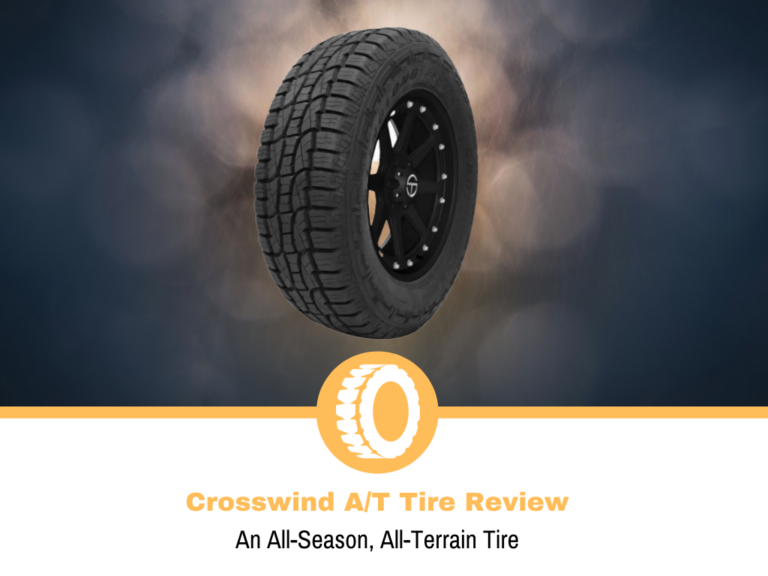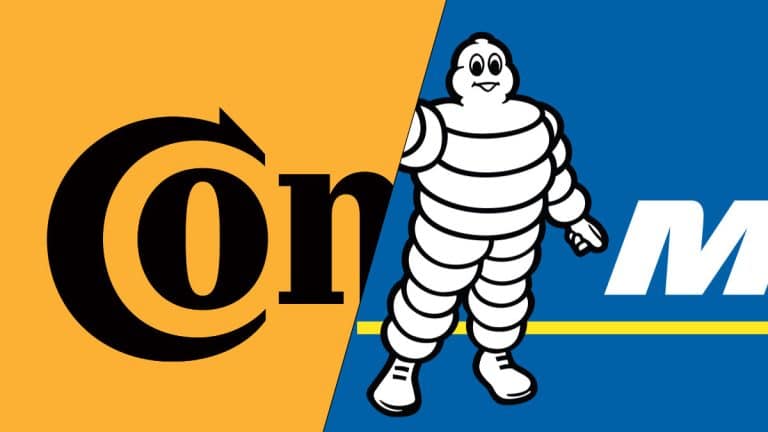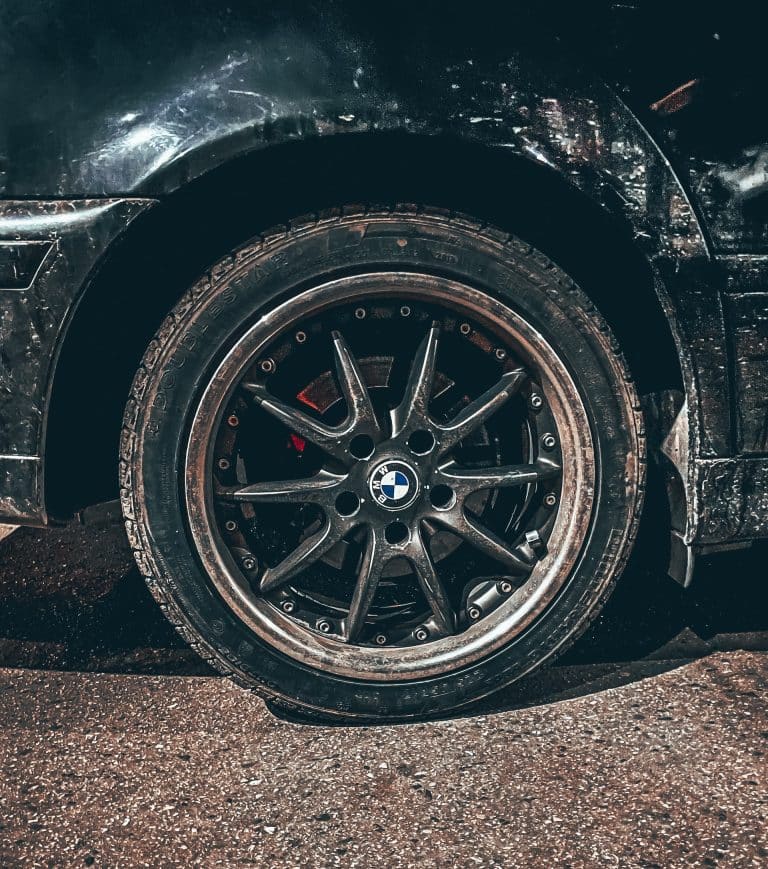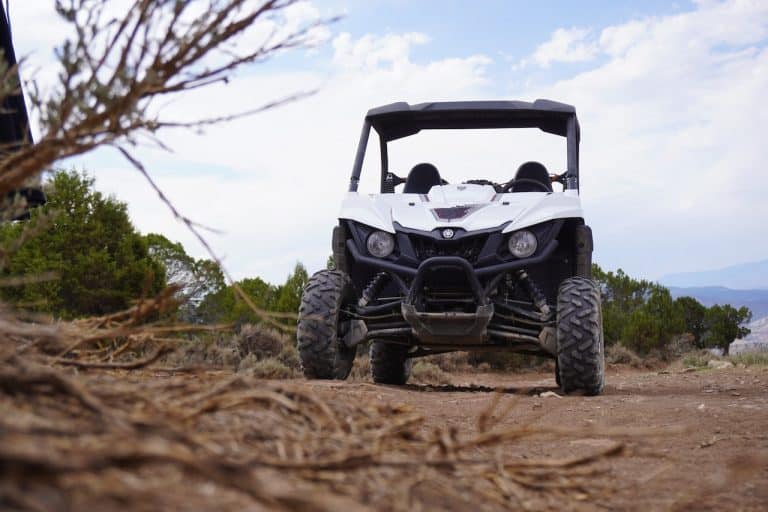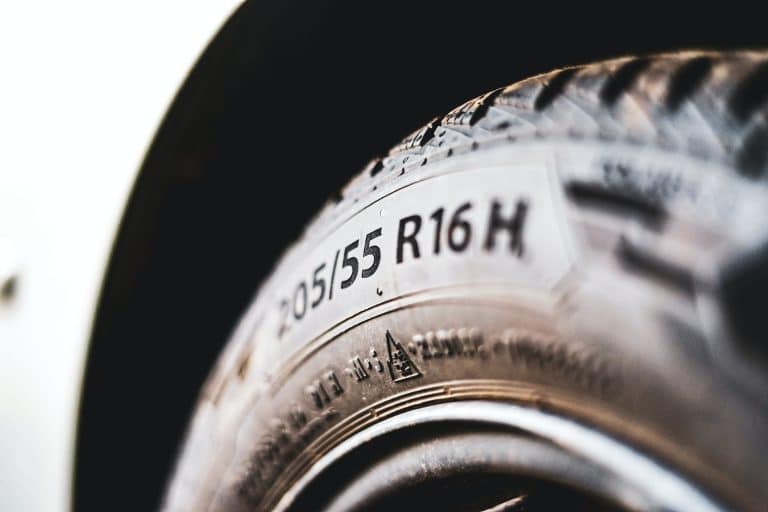Cooper vs Yokohama Tires
What is the key difference between Cooper and Yokohama tires? This question isn’t easy to answer, given that both these brands are aimed at budget-minded users. Like Cooper, which prides itself on its pocket-friendly prices, Yokohama tires also weigh light on the pocket.
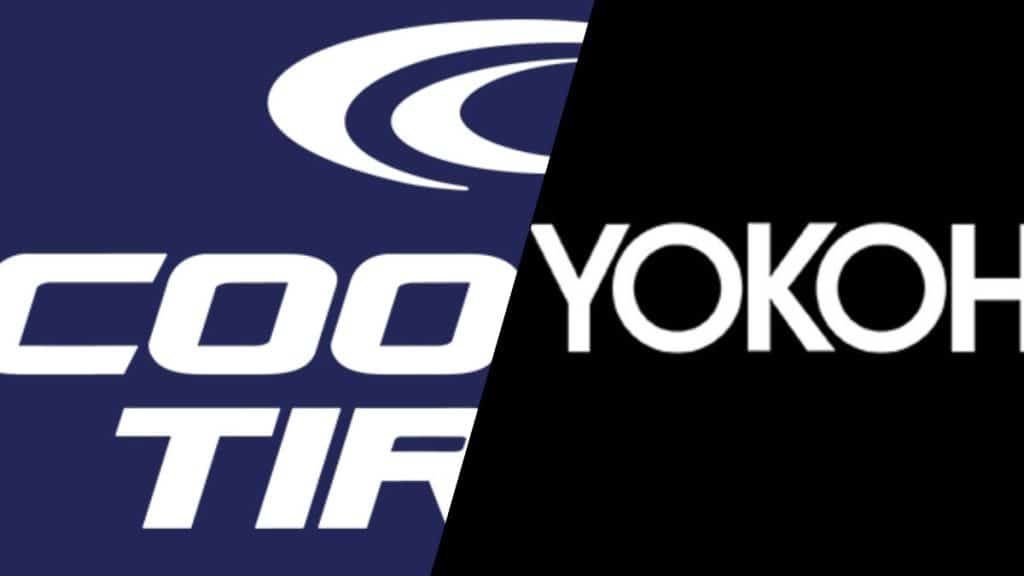
Cooper Rating: 4.5/5
Yokohama Rating: 4.7/5
Yet there are many differences between these brands. While any list of Cooper’s best-selling tires will be dominated by all-season and all-season touring models. It is its all-terrain and grand touring tires that help drive the majority of profits toward Yokohama’s coffers.
These brands’ histories are also different. Cooper Tire & Rubber Company was founded in one of the calmer neighborhoods of Akron, Ohio, in 1914 before its headquarters were moved to Findlay. Yokohama, on the contrary, opened its eyes in pre-World War 1 Tokyo.
All of this explains the different trajectories Cooper and Yokohama took to position themselves as the 14th and 8th largest tire producers in the world, respectively. What it fails to explain, however, is which of these two tires might be a better fit for your vehicle.
That is why this article is here for. In the following paragraphs, we’ll discuss in detail everything you need to know about the tire lineups of these brands. Next, we’ll compare their tires on three key metrics – performance, price, availability – before announcing the winner.
Cooper Tires History
M and M Manufacturing, the previous name of Cooper Tire & Rubber Company, was founded in 1914 in Akron, Ohio. The city has a massive impact on the tire industries of the world, as it also gave birth to BFGoodrich, another of world’s major tire manufacturers.
Seven years after its founding, this M and M Manufacturing’s founders decided to purchase Giant Tire & Rubber Company. This decision was vital as it led to the company’s headquarters moving to Findlay. The location change was followed by name change, and Cooper tires was born.
Right from its first day, Cooper made no intention of hiding its primary goal: producing high-quality tires at an affordable price. That is something easier said than done, especially due to the restrictions limited price places on quality. Yet Cooper has stuck with its original decision for to date.
Not that this decision hasn’t paid any monetary dividends. Sure, Cooper tires aren’t in the same class as those from Michelin or Bridgestone. Yet they are good enough to catapult this mid-range tire manufacturer to the 14th spot in the list of the world’s largest tire manufacturers.
Cooper’s Tire Families
Seven families complete Cooper’s tire lineup. They include all-season touring/grand touring (Endeavor, CS), performance (Zeon and Discoverer), summer (Evolution) and winter (WeatherMaster and WM). Let’s discuss them all one by one.
Endeavor
There are three tires in Cooper’s Endeavor lineup. The first and the oldest is the Cooper Endeavor, an all-season touring tire backed with an eye-catching 65,000-mile treadlife warranty. This model is available in all the standard sizes of passenger cars.
That is not the case with the Endeavor Plus, another all-season touring tire. Unlike its predecessor and competitor, this model can only be installed on CUVs and SUVs. Passenger cars get in fashion once again with the Endeavor Tour, which has no love lost for bigger vehicles.
Zeon
Performance and high-performance tires popular Cooper’s Zeon family. Our favorite among them is the Zeon RS3-G1, an affordable performance tire. But you cannot guess this model’s true price exceptional high-speed stability and straight-line tracking, a great sign.
That is also true of other Zeon tires, of which there are many. Bear, in mind, though that these models are no Michelins or Bridgestones – while good for an occasional race day, they don’t have what it takes to help you win races on a regular basis.
CS
Cooper’s CS family is more popular than the others put together. Mainly because of two particular models, the CS5 Ultra Touring and CS5 Grand Touring. The former is backed with an excellent 70,000-mile warranty, not class-leading but pretty close to being the best.
The CS5 Grand Touring is backed for 80,000 miles, a number many people thought impossible for a grand touring tire until they saw this model. Every member of the CS series has most if not all the attributes you expect to see in reliable all-season touring tires.
Evolution
A mere glance at the catalogue of Cooper’s Evolution family indicates its diversity. Whether you’re in the market for an all-season touring tire or a winter model, or whether you’re searching for an off-road tire for your 4×4, chances are you’d find your tire type in the Evolution series.
WM and WeatherMaster
As their names imply, WM and WeatherMaster Tires are meant for harsh wintry conditions. Models belonging to these series can be fitted on passenger cars, SUVs, CUVs and light trucks. There are also one or two tires for commercial vans.
Yokohama History
The Yokohama Rubber Company Limited was found on the 13th of October 1917 in Japan. The company was the result of a joint venture between Yokohama Cable Manufacturing and BFGoodrich, the latter a US tire company which was founded in Akron, Ohio almost five decades earlier.
Yokohama’s US connection helped it a lot in its early years. As work was going on at the company’s first production facility, the Hiranuma Plant, in 1920, the belts, tires and other products produced there were churned out of tire manufacturing equipment imported from the US.
While the plant didn’t last long (it was completely destroyed in the 1923 Great Kanto Earthquake), Yokohama continued chugging along. The year 1930 saw the company produce its first tire at the new plant, followed by the launch of an era-defining Y-shaped tire seven years later.
Fast forward to 2022, and Yokohama is ranked as the 8th largest tire manufacturer in the world, 6 places above Cooper. The Japanese tire giant enjoyed profits of just under $2 billion last year, bigger than the likes of Hankook and Pirelli, both of which are ranked above Yokohama.
Yokohama Tire Families
While Yokohama offers tires in multiple categories, much of its fame (and profits) come from its performance and all-season models.
ADVAN
Yokohama’s ADVAN tire family is as diverse as Cooper’s Evolution. You can find all-season, summer, and winter tires in this series. All the models offer excellent fuel efficiency for reduced emissions and better gas mileage. Their handling performance is also pretty decent.
There is, however, one thing that is common between all seven tires of this family. That is that they are all designed to be installed on sports and muscle cars. That means that those of you who are fond of everyday driving on passenger cars should look elsewhere.
AVID
The Avid Ascent GT perfectly demonstrates what this series is all about. Here is an all-season grand touring tire that combines sleep-inducing comfort with equally low noise levels. Plus, it offers higher levels of grip in wet and dry conditions alike.
TriBLEND Technology, a common feature in the latest AVID tires, is also on offer. This technology utilizes the silica tread compound and low-Tg polymer to enhance the tires’ grip. However, like other members of this family, the Ascent GT struggles in winter.
Geolandar
Many drivers wrongly assume that Yokohama’s Geolandar series is all about all-terrain tires. Sure, in the Geolandar X AT, this family has one of the best all-terrain tires on the market in its catalogue. But it is also home to a fair few number of all-season touring tires.
Need proof? The Geolandar CV G058 is a reliable all-season touring model for SUVs, crossovers and some minivans. This model also comes with a 65,000-mile treadwear warranty, an excellent number for a non-passenger-car tire.
Ice Guard
Yokohama’s Ice Guard family betrays its intention with its name. Every member of this family has what it takes to safely carry your vehicle from point A to point B in harsh wintry conditions. The Ice Guard tires can be fitted on any vehicle except performance vehicles.
Which, when you think about it, isn’t a major shortcoming. After all, not many people in their right mind would tempt their luck on snow with a sports or muscle car.
PARADA
The Yokohama PARADA SPEC-X, the only member of this family, has been designed to provide passenger cars, SUVs and trucks with an aggressive style and performance. A wide road profile ensures confident handling, with a multi-pitched tread pattern reducing road noise.
BluEarth
The Yokohama BluEarth tires have everything everyday drivers look for. These models have a low rolling resistance to ensure excellent fuel savings. Wide circumferential grooves ensures superb hydroplaning resistance. And these tires won’t gasp for traction in winter, either.
Cooper Vs Yokohama Tires: Differences
Here are the major differences between Cooper and Yokohama tires:
Performance
Yokohama tires are a better choice for performance-oriented drivers.
Many drivers feel that Yokohama tires’ high-speed stability and aggressive cornering performance belie their meager asking prices. Cooper tires are also budget-friendly. But we think that it is a better choice for everyday drivers looking for budget-friendly replacement touring tires.
Availability of Options
Did you know that Cooper only makes car, SUV and truck tires?
Yokohama, to its credit, casts the net wide. This makes Yokohama tires an attractive option for a bigger crowd of drivers. For this reason, as far as the availability of options is concerned, Yokohama is a better option than Cooper.
Price and Warranty
Cooper performs better on price and warranty fronts.
Not only does Cooper tires cost less than their counterparts from Yokohama, they are also backed with bigger warranties. While a Cooper tire can be backed for as many as 80,000 miles, it is rare if not impossible for a Yokohama tire to be backed with a 65,000-mile+ warranty.
Advantages of Cooper
- Backed with bigger warranties
- Offer dedicated winter tires
- Are also affordably priced
Advantages of Yokohama
- Offers better performance tires
- Provides a wide range of models
- Has some excellent all-terrain tires
Cooper Vs Yokohama Tires: Which Brand to Choose?
Cooper tires are a better option for the everyday driving and the off-roading crowd. In the CS5 Ultra Touring and Discoverer AT3, the US tire manufacturer has produced one of the best all-season touring and all-terrain tires on the market, respectively.
Yokohama tires, meanwhile, are a better option of the two for enthusiast drivers. Especially those who cannot afford the likes of Michelin and Bridgestone.
